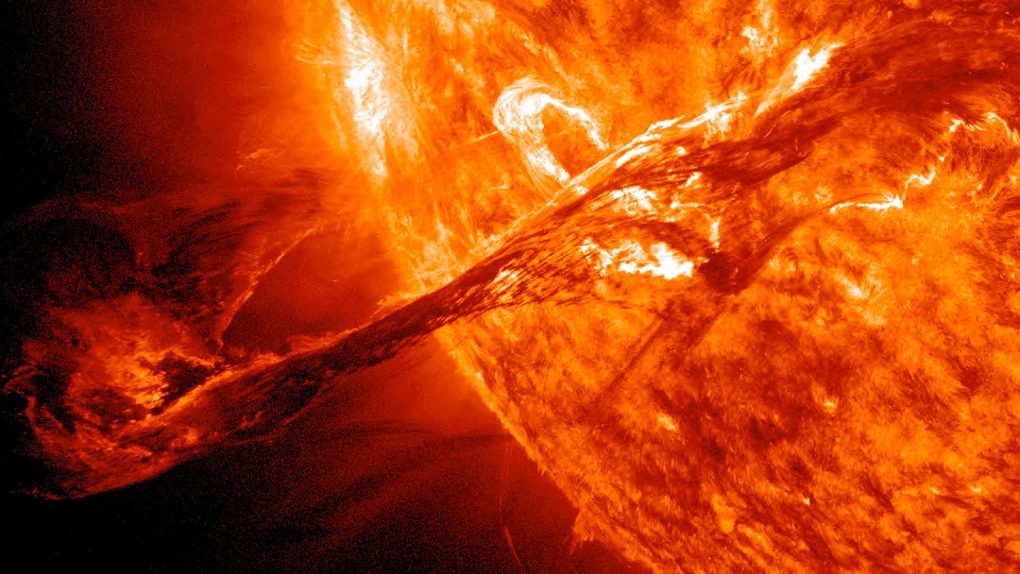The Earth is getting warmer and warmer, and scientists are now essentially unanimous in their opinion that humans are to blame, but could other factors also be contributing? A new study looked closely at whether or not our sun could also being playing a role in how hot it’s getting here on our planet. As far as the results go, well, if you’re looking something that excuses humanity’s impact on global warming, the sun most definitely isn’t it.
The sun might look the same every day it rises but it actually goes through distinct cycles. Those cycles bring changes to the sun’s overall brightness as well as the production of the dark sunspots that often mark its surface, so it’s logical to wonder if those fluctuations could also be responsible for spikes in temperatures on Earth recorded over the past 100 years.
Our planet has seen an overall temperature increase of about one degree in the past century, and the rate at which the temperature is rising is speeding up dramatically. When studying solar cycles of the past, and their impact on the temperatures felt here on Earth, researchers were able determine that the faster-than-ever spike in temperatures since the 1970s isn’t connected to the sun’s brightness whatsoever. In fact, the sun hasn’t seen any dramatic brightening over that timeframe, and the increase in temperature over those decades has been linear rather than staggered.
In short, if the sun is somehow contributing in a minor way to the gradual increase in temperature on our planet, manmade climate change thanks to CO2 levels from industrialization and deforestation is so much more impactful that it’s impossible to even tell.








